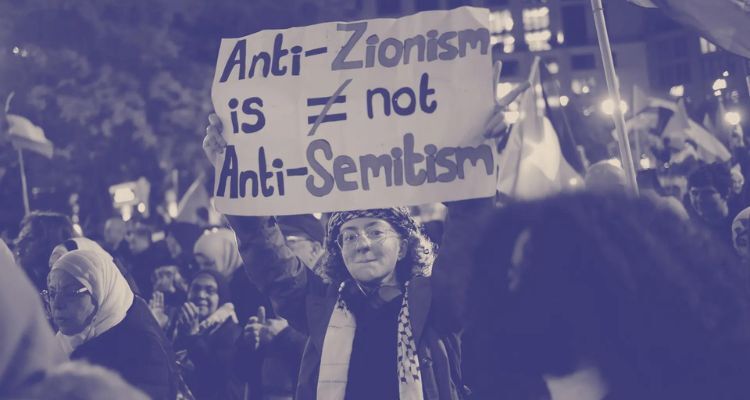
Analyzing the Roots and Complexities of Antisemitism
[ad_1]
The recent rise in antisemitic incidents, particularly since the events of October 7th, has been alarming. How do you perceive this wave of antisemitism in comparison to previous instances?
From the UK perspective, the recent surge feels different for a couple of reasons. Firstly, the dramatic increase in antisemitic incidents recorded by the police over the last few weeks, following the events of October 7th, surpasses anything we’ve witnessed in the past. Secondly, previous debates centered on how to discuss Israel and the distinctions between antisemitism and anti-Zionism. However, the current wave of incidents is marked by responses to a tragic event, making it distinct from past debates.
There have been discussions about defining antisemitism, particularly in relation to criticism of Israel. Could you elaborate on the different definitions and their implications in the ongoing debates?
Certainly, the International Holocaust Remembrance Alliance (IHRA) adopted a definition of antisemitism in 2016, aiming to differentiate it from legitimate criticism of Israel. However, this definition has been criticized for its ambiguity and potential curtailment of free speech. In response, the Jerusalem Declaration on Antisemitism, developed in 2019, sought to clarify the boundaries between antisemitism and valid criticisms of Israel, emphasizing the importance of distinguishing between the two.
The recent incidents have been linked to the Israeli-Palestinian conflict. How do you assess the connection between geopolitical events and antisemitic incidents?
The events in Israel and Palestine often reverberate beyond the region, dividing people globally. Mainstream Jewish communities in the diaspora are sometimes identified with Israel, making them vulnerable to attacks, even though they don’t represent a unified perspective. It’s essential to understand the immediate context in which antisemitic incidents occur. While hate crimes have their roots in deep-seated prejudices, geopolitical events can act as catalysts, amplifying existing tensions.
Various forms of antisemitism exist today, from right-wing to left-wing antisemitism. Do you perceive these strands as distinct, or do they share common elements?
Different political traditions draw on a common antisemitic culture, but they manifest distinct characteristics. While historical continuities exist, understanding specific instances of antisemitism requires considering the unique contexts in which they emerge. For instance, labeling recent events as pogroms, while evoking historical memory, may not accurately capture the current complexities, especially when considering the power dynamics in Israel and the occupied territories.
There seems to be a paradoxical situation where Jews, seeking protection through alliances with governments, face criticism for these alliances. How do you navigate this dilemma?
This situation doesn’t imply causality but reflects the complex dynamics at play. Jews, like other racialized minorities, make strategic political choices and form alliances based on their perceived safety. However, these alliances can also evoke resentment and anger, especially if some groups believe that Jews receive preferential treatment. It’s crucial to understand these dynamics without simplifying them, recognizing the multifaceted nature of antisemitism and its evolving historical context.
In conclusion, antisemitism’s roots are deep and multifaceted, intertwined with historical prejudices and geopolitical events. Understanding the complexities of antisemitism requires careful consideration of its historical context, the nuances of political alliances, and the distinct manifestations of hatred in different settings.
[ad_2]
Source link


